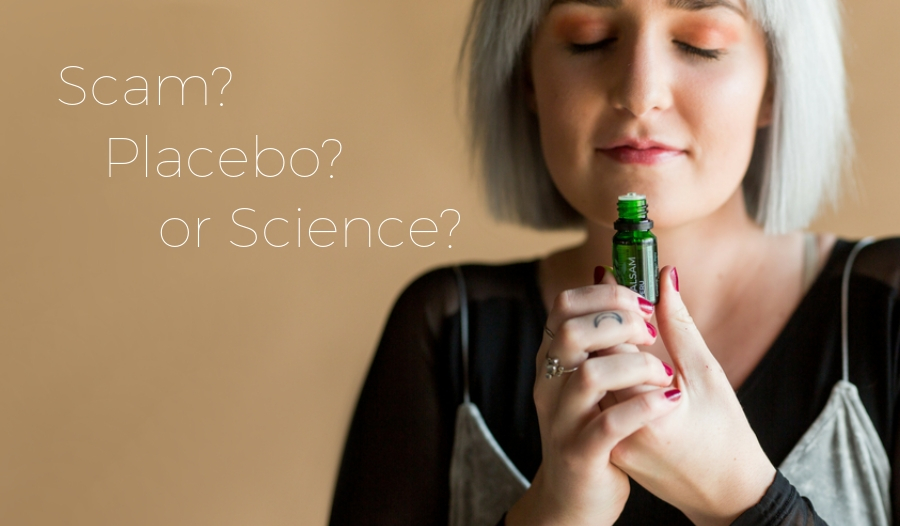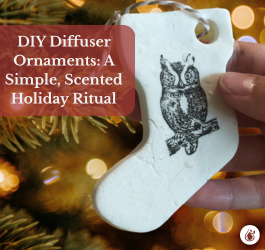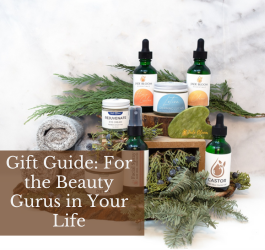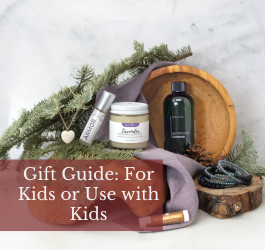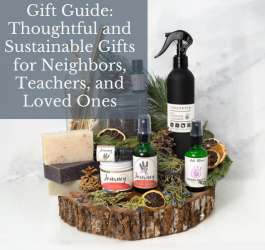The chances are you have asked yourself this very question. It's likely you have concluded that essential oils promote health and wellness or the perceived effectiveness that others claim to derive, is merely “in their head” and what scientists call the placebo effect.
Today, because of my life experiences, I am a critical thinker and I value scientific evidence over individual experience and sound experimental results over traditional use inferences. In other words, I believe a properly conducted and carefully controlled scientific study should not be rejected over contradictory individual experiences or over what has been traditionally held as true. Science has changed our paradigm for thousands of years and continues to do so today, always providing us with a better understanding of our world and driving us closer to absolute truth. The earth is no longer flat nor is it the center of the Universe. We now know that more stars exist other than those that we can count in the night sky. Smoking is no longer "good for your throat", as advertisements once claimed backed by Physicians. Apparently, you can get pregnant standing up, people don’t die at supersonic speeds, spontaneous generation is a myth, and racial superiority has been disproven through DNA mapping.
Science has come a long way and is moving forward at an exponentially faster pace today than it was just 10 years ago through technological advancements. Ten years ago I heard about essential oils and, though I didn’t care to research it beyond the label of the bottle I held in my hand, I quickly concluded that is was nothing more than good-smelling hocus pocus. Seven years ago I discovered that putting a few drops of peppermint and eucalyptus essential oil at my feet while I showered not only smelled good, but also seemed to help me breathe better. However, I still had no interest in dispelling my original conclusion or exploring scientific journals for any supporting data. Three years ago I began using essential oils regularly because “I don’t know they just work and often give me better results without the side effects that I experience with prescription drugs.” But today I understand the chemical makeup of essential oils, how our bodies react to those natural chemicals, and I have mountains of scientific evidence that answers why Cardamom essential oil can be used to treat infectious diseases, why Neroli essential oil has promising characteristics for seizure management, why Black Pepper essential oil reduces the symptoms of withdrawal from smoking, why Cassia essential oil inhibits the growth of bacteria, and why Allspice essential oil relieves pains from muscle cramps.
I don’t have to believe these claims because my neighbor, my Mother, my best friend, and my co-worker told me that that was their experiences when using essential oils. I believe these claims because science proves them through properly conducted and carefully controlled studies. Jade Bloom Essential Oils does not make claims about what essential oils do or don’t do, rather we carefully compile scientific data available to us and relay that information through proper education. Additionally, we always encourage users to seek proper professional and medical guidance for safe usage as essential oils that are 100% pure are very potent.
Our vision and mission statements have become the foundation for what we do each day at Jade Bloom and our managerial team never moves forward with any key decision that varies from our core values and company culture. Those statements say, “Jade Bloom’s vision is to deliver Health, Healing, & Happiness™ to as many people as possible.
This is achieved through the education of holistic alternatives to health and wellness, as it should complement traditional medicine, and by manufacturing and distributing the highest quality and lowest cost all-natural, organic products and 100% pure essential oils.
Jade Bloom’s mission is founded on 4 key pillars: 1) commitment to quality first over cost savings, 2) education based on the best available scientific studies, 3) obsession with a customer-centric culture, and 4) low-priced products that are the direct result of efficient operations, low overhead, and synergistic energies produced by our team members who love what they get to do each day for our customers.”
In the spirit of key pillar #2, we have begun the labor-intensive project of compiling all available scientific studies performed by The U.S. National Library of Medicine on essential oils, extracting their conclusions, and organizing the data and direct links to each separate study. To our knowledge, we are the only company in the health & wellness sector that has undertaken a project of this magnitude with the aim to provide the best available science for every essential oil. You can find this data on each product page by clicking on the “Additional Information” tab and you will discover data that looks like this:
U.S. National Library of Medicine
"Allspice essential oil, when added to massage oils and baths, is known to promote circulation so as to relieve pain from muscle cramps and strains. Also, it is used for headache, to combat stress and depression and to overcome fatigue because of its comforting scent. Allspice blends well with ginger, lavender, and other spices, making it diversified when it comes to the choices for aromatherapy."
"The reason why Allspice is used for treating indigestion might be due to the abundance of the common polyphenol Eugenol in Allspice, which is known to stimulate digestive enzymes."
Complete Scientific Study Available: https://www.ncbi.nlm.nih.gov/pmc/articles/PMC3891794/
Perhaps you are a regular user of essential oils and you have been for years. Sound scientific studies are not meant to discredit your personal experiences, but rather validate your experiences and provide you with some insight of why and how oils work for you. Why is it that Lavender essential oil soothes a burn? Which natural chemicals in Clove essential oil numb the gums and kill bacteria? How does Frankincense essential oil help arthritis? What essential oils help me sleep better, curb my appetite, relieve depression, heal a wound, boost immunity, fight congestion, ward off insects, regrow hair, or treat acne?
The surprising fact is that the U.S. National Library of Medicine has performed scientific studies that answer all of these questions about essential oils and most of these studies have been concluded in just the past few years. We are committed to the scientific findings of each of these studies and we will continue to compile the data and update our website with each new study while simultaneously working to educate others about which claims are really hocus pocus versus the real claims founded on scientific evidence.


